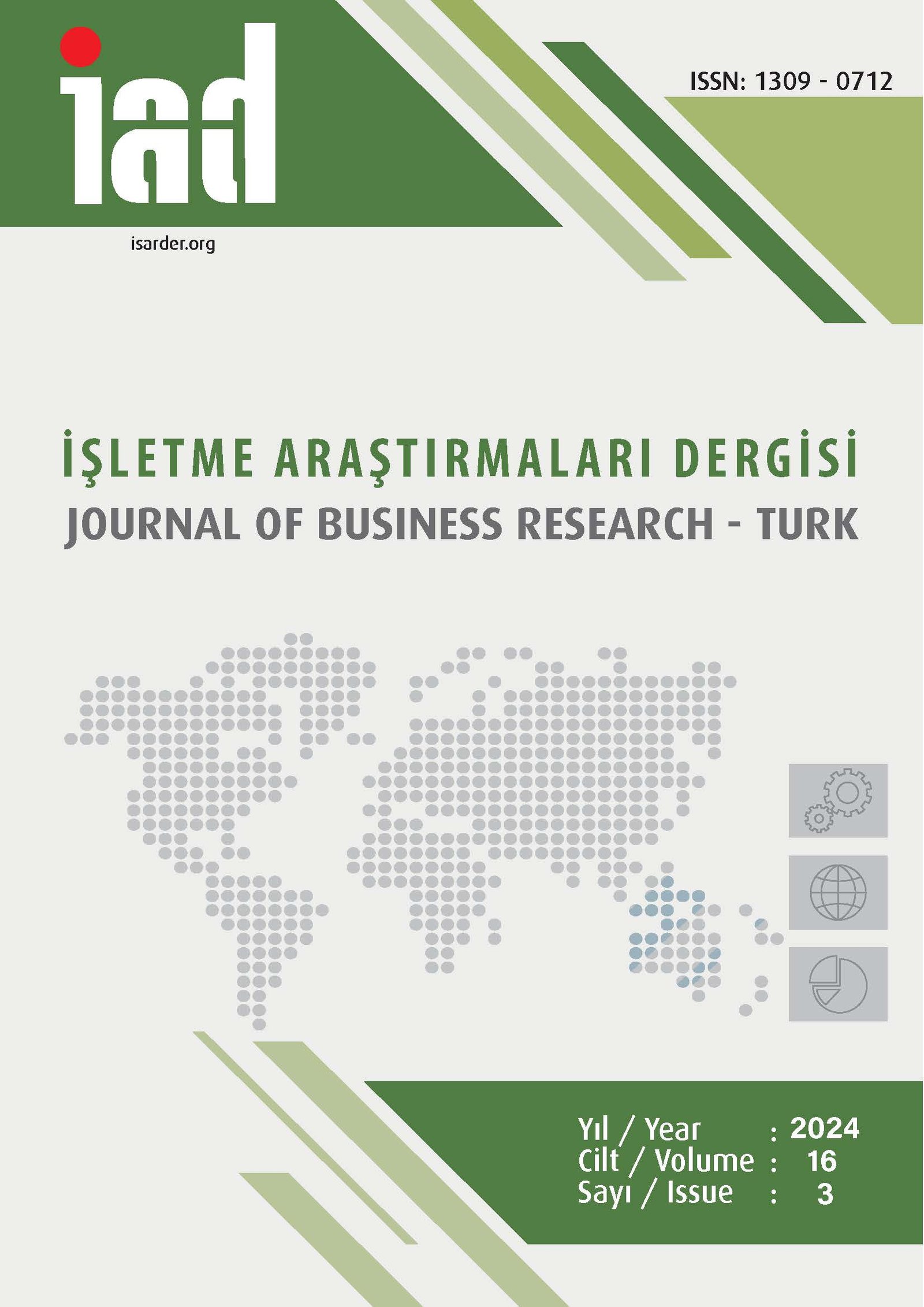The Moderating Role of Organisational Justice Perception in The Effect of Psychological Contract Violation on Creative Behaviours in Service Sector Employees
DOI:
https://doi.org/10.20491/isarder.2024.1880Keywords:
Psychological contract breach, Organizational justiceAbstract
Purpose – Creativity is a valuable asset for all sectors, especially the service sector, as it encourages innovation and problem solving and improves overall performance. Understanding the factors affecting creative behaviors among employees is critical for businesses that want to make effective use of creative potential. Based on this point, in this study, the moderator role of organizational justice perception in the effect of psychological contract violation on creative behaviors in service sector employees was evaluated. Design/methodology/approach – The sample of the research, which was conducted within the framework of the relational survey model, one of the quantitative research methods, consisted of 422 service sector employees. SPSS 26.00 and AMOS 21.00 programs were used to analyze the data. Structural equation modeling was used to test the hypotheses. Findings – According to the research findings, psychological contract violation has a decreasing effect on creative behaviours. On the other hand, it was concluded that distributive justice, procedural justice and interactional justice separately had an increasing effect on creative behaviours. On the other hand, it was determined that procedural justice, one of the organisational justice factors, played a regulatory role by reducing the negative effect of psychological contract violation on creative behaviours. Discussion – Organizations should proactively reduce psychological contract violations and prioritize building perceptions of organizational justice among employees in order to provide a dynamic workforce to navigate the complexities of the modern work environment and increase creative behaviors within the organization.
Downloads
Published
How to Cite
Issue
Section
License

This work is licensed under a Creative Commons Attribution-NoDerivatives 4.0 International License.





